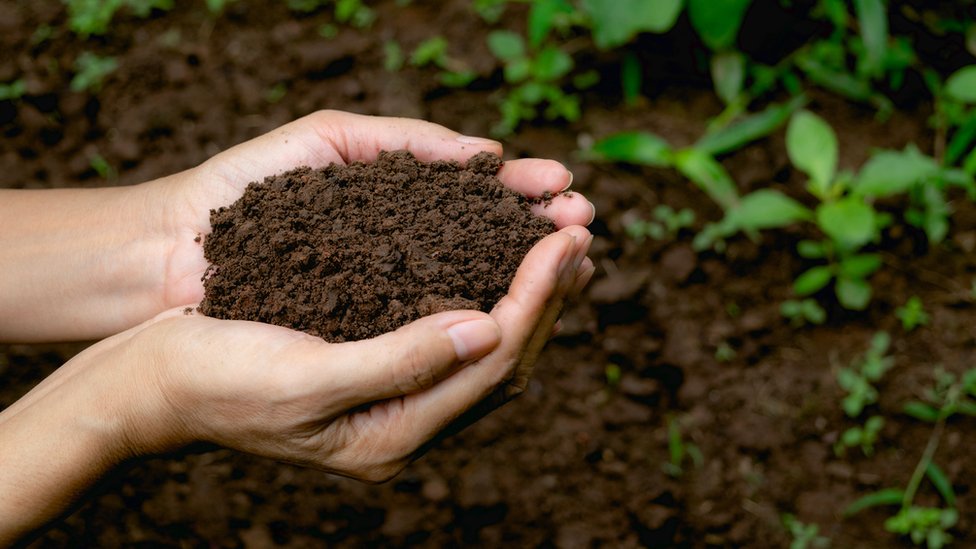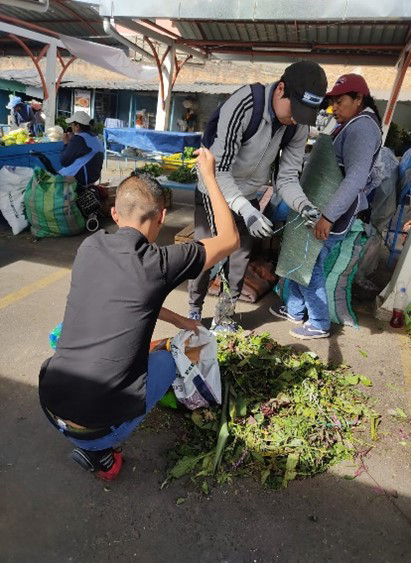According to data from the Quito Informa Agency of July 2023, the city generates an average of 2,300 tons of waste per day, only 1% of which is recovered by waste pickers who work under extremely precarious conditions to gather PET bottles, tetrapacks, plastic, cardboard, and other waste. Meanwhile, 60% of all waste is compostable material that comes from households, businesses, and markets. San Roque is one of the main reception areas for the indigenous peoples who have been expelled from the countryside since the 70s, so it has been a key tie to rural-urban linkage. In the very same complex, the Primero de Mayo Central Market has operated since January 15, 1975, bringing together more than 150 traders of which more than 100 are herbalists engaged in the production, collection, and sale of edible and medicinal herbs. This market is the first link in the distribution of medicinal herbs in the city, as it supplies intermediary traders from other markets in the sector and in the city. However, wholesale does not yield an advantage or higher profit. In fact, more than 85% of these producers earn less than minimum wage. Price ceilings are imposed by intermediaries, who increase the final price by up to 200%.
In this context, in 2022, the UNDP Ecuador Acceleration Lab coordinated a 'Community Innovation Minga,' which consists in co-creating and testing solutions s to address challenges faced by medicinal herb vendors at the Primero de Mayo Central Market in Quito, together with students from the National Polytechnic University’s Vocational Training School. As a result of several months of collaboration, 31 ideas were devised, of which 5 turned into functional prototypes and four were piloted, one of them related to organic waste management. We now know that the problem of organic waste management can be turned into an opportunity through a circular economy model. Throughout 2023, the Primero de Mayo Central Market, with the support of Ecuador´s Accelerator Lab, the Faculty of Civil and Environmental Engineering of the National Polytechnic School, and 'Marca Patito' enterprise implemented the pilot project for organic waste management with a circular economy approach to compost organic waste for both commercialization and personal use by the traders. Below, we present this pilot's results and lessons learned.

 Consent to share form or official link.
Consent to share form or official link.
The first step was waste characterization and quantification. Any solution projection has to be based on data. Market waste is collected by a municipal collector that mixes organic and inorganic waste, therefore, there is no disaggregated data by types of waste. The contribution of two Vocational Training School (ESFOT) students from the Water and Sanitation Department was extremely valuable, as their thesis work focused on characterizing this market's waste. They systematically separated and weighed waste for 8 consecutive days through a validated methodology to obtain this data.
Secondly, any intervention in waste management may encounter significant resistance since it implies behavioral change, as well as temporary storage for waste, which, if not done correctly, could bring more problems than solutions. Therefore, the idea of composting organic waste was closely discussed with both the market’s Management Committee and traders to collectively build a solution that would address their concerns. After all, the solution mapping motto is "No solution without involving those concerned." As a result of conversations, installing a compost pen in the same market was ruled out, due to the vendors' lack of time to manage it and their skepticism about potential unsanitary effects. Consequently, for this pilot, it was decided to have a third-party composting service that would take care of the logistics and composting externally. In the co-design phase, assemblies and conversations were held, and a survey was conducted with 69 traders to identify waste management practices and attitudes in the market as well as to measure willingness for a potential pilot. In this process it was important to incorporate traders' participation from the initial phase to its implementation.
Third. Personalized support and advice on waste segregation were provided to traders individually at their stands. We avoided holding workshops due to the demanding schedule that people in this market have. Feedback was based on waste observation to identify errors in waste segregation, motivating them to continue with this practice. In this phase, a coordinator was appointed, who stores organic waste from various stands in a 'community' sack. Likewise, the role of delivering sacks and monitoring the storage space was assigned to the guards, who already had a role in the end disposal of waste.
Implementation. As this was a pilot program, no substantial changes were made in the market's infrastructure or in the delivery of trash cans. It was important not to introduce too many elements in order to achieve specific yet effective changes. Our starting point consisted of the pre-existing practices that applied the use of bags or sacks. We provided reusable sacks, and in coordination with the Management Committee, defined a collection point. Our partner, Marca Patito, offered the logistics for this pilot. They collected organic waste sacks on Wednesdays for processing at a composting plant.
Finally, once the practice of systematic segregation, collection, and delivery of organic waste had been established, it came time to seek out feedback, both on results and lessons learned, as well as regarding the compost, now fertilizer. After nine weeks and a little over a ton of composted waste, Primero de Mayo Central Market's traders received 100 kg of fertilizer. Along with them, the management model will be fully adjusted to define the uses and redistribution of this resource that will be valuable for their crops.
As of 2024, over 9 tons of waste was composted. The pilot is sustainable, as Marca Patito continues to offer logistics and composting with no charge, as part of social responsibility program, that has in return, given them access to over $15k funding.


 11Sustainable cities and communities
11Sustainable cities and communities 12Responsible consumption and production
12Responsible consumption and production

Comments
Log in to add a comment or reply.